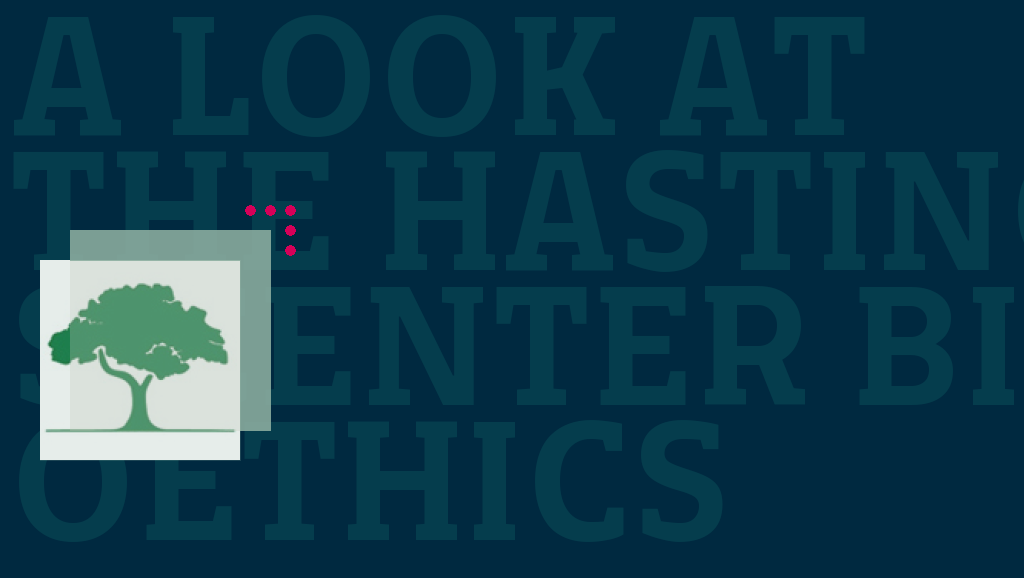For anybody interested in taking an overview of current debate on bioethics, the Hastings Center bioethics forum would be a good starting point. I say this not only because the forum hosts the Centre’s own bioethics blog, well informed and non partizan as ever, but also because it provides links to many other blogs addressing similar and also much broader issues.
The Hastings centre blog itself tends to address problems that arise in the US, there are several postings regarding President Obama’s bioethics commission, soon to be created after the disbanding of the Presidents Council on Bioethics, questioning the influence and power that the commission can realistically exert when ethical decisions are made at a state and not national level but also questioning the aims and scope of such a commission.
Another interesting argument involves penalizing unhealthy bevahiour in the workplace, following the publication of a set of ethical criteria for employer-based programs that penalize unhealthy behaviour. Again a debate that involves problems of civil liberty, definition and the social, educational, subcultural and class effects in healthy lifestyle choice.
The blog also investigates health cost issues in the States, a topic that and contains an article that I have previously reviewed on this site on Flu pandemic and scarse resources, and in fact the centre has recently launched another blog solely dedicated to healthcare cost issues entitled The Health Care Cost Monitor. The Health Care Cost Monitor provides commentary and opinion on cost control as part of health care reform. Its editor states that it was created to fill a void: the cost crisis has not been addressed in the public and legislative arenas with the care, depth, and nuance it requires.
The Hastings center bioethics blog has only been operational for 3 months but as something is published every 2 or 3 days covers a wide range of topics including a harsh and emotional critique of bioethicists written by Hilde Lindemannand discussing the way they order their world views and arguments with an equally harsh and critical comment upon the article to follow.
Another blog entitled Secondhand smoke that is listed in the blogroll that I will go on to investigate contains a report and comment about the Hilde Lindemann piece on the hastings Center blog mentioned above.
The home page of the forum contains a blogroll, a list of links to other bioethics and wider related interest blogs, and this is a mine of information. A look through the links and the incredible complexity of scientific advancement becomes clear, with nanotechnology appearing on many blog sites for its potential and the ethical implications of its use in medicine.
Bioethics.net is an interesting blog as it is run by the editorial staff of The American Journal of Bioethics. It offers an interesting and ongoing discussion of the problems of the regulation of nanotechnology, referring to the current state of play as resembling the Wild West of days gone bye. Their example case is of Dr. Chiming Wei, professor of surgery at Johns Hopkins School of Medicine who formed the American Academy of Nanomedicine (AANM), produced a journal and according to the blog proceeded to take charitable donations and fellowship fees that Dr Wei held in his own personal bank account and seemingly did not correctly declare to the US tax office (or anyone else for that matter). It would appear that in the excitement that surrounds nanotechnology using a glossy website and some extravagent CV manipulation it was possible to enrol a significant sector of the scientific population and make a significant amount of tax free money, all according to the blog of course.
Another blog that addresses the issue of nanotechnology is entitled 2020 Science, and their opening slogan of ‘Providing a clear perspective on developing science and technology responsibly’ seems to advocate a similar line to that of the Bassetti Foundation and I would say that the site is well worth a browse. According to the blog background information ‘2020 Science is personal blog about science and technology in the 21st century written by scientist and emerging technologies advisor Andrew Maynard that tackles some of the knottier questions raised by science and technology’.
The blog contains several different sections dedicated to nanotechnology in its many facets, including a short series of videos featuring interviews with scientists that explain nanotechnology applications and their risks and an article entitled From Nano Novice to Nano Genius in 13 steps that gives a clear and understandable explanation of what nanotechnology actually is.
Through the blog its author is also conducting an anonymous survey into attitudes towards the use of mind enhancing drugs, a topic that our own Jeff Ubois is interested in and has posted about.
If you have an hour or so free it could be well spent having a look through some of these sites.
















